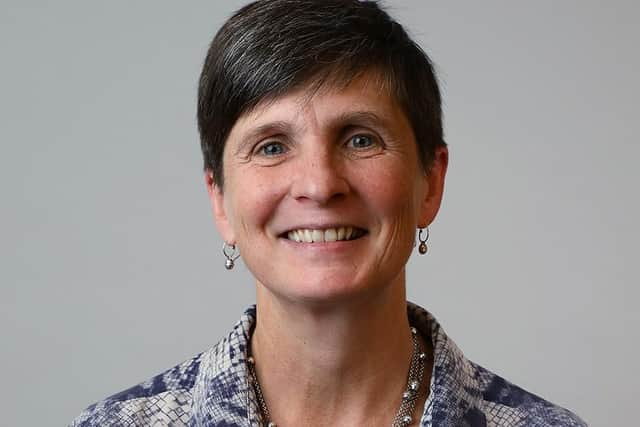Middle-aged in poorest areas ‘more likely to die of Covid-19’ claims health director
and live on Freeview channel 276
Health and wealth are “inextricably connected”, the Health Foundation said, with the Covid-19 mortality rate 3.7 times higher for under-65s living in the 10 per cent most deprived neighbourhoods.
The charity analysed data from the Office for National Statistics (ONS) and other sources between March 2020 and May 2021.
Advertisement
Hide AdAdvertisement
Hide AdIts nine-month inquiry found that people in these areas had poorer underlying health which left them at greater risk when the pandemic hit.


Adults in their 50s and 60s living in the poorest areas were twice as likely to have at least two pre-existing long-term health conditions, such as lung disease or diabetes, according to analysis of primary care data.
The inquiry found that the way the UK recovered following the 2008 financial crisis had a “direct bearing” on the country’s resilience to the pandemic.
With public services “eroded”, it said stalling improvements in life expectancy and deepening inequalities over the next decade left the UK more vulnerable to the impacts of the pandemic.
Advertisement
Hide AdAdvertisement
Hide AdDirector of health Jo Bibby from Hebden Bridge said the shortcomings of the response to the 2008 financial crisis left a “legacy of deep-rooted issues” which made the UK more vulnerable to the pandemic.
She said: “We cannot afford to make the same mistake twice. Government must address the causes of poor health and invest in jobs, housing, education and communities. This is the only way to create a healthier society that can better withstand future crises.
“Ministers should work together to put health at the heart of the forthcoming levelling up strategy, with clear targets and a regular, independent assessment of the nation’s health laid before Parliament.”
Factors such as the type and quality of people’s employment, housing and access to financial support to self-isolate contributed to increased exposure to the virus among certain groups.
Advertisement
Hide AdAdvertisement
Hide AdOnce exposed, people’s pre-existing physical and mental health made them more vulnerable to severe outcomes.
Researchers found male security guards, care workers and taxi drivers were more likely to die with Covid-19..
People from ethnic minority communities, young or disabled people, and those with mental health conditions in particular experienced “worsening and compounding inequalities” which increased exposure to the virus and threatened their health.
The Health Foundation is calling for the Government to prevent “longer-term scarring effects” by tackling the healthcare backlog, increasing mental health support, protecting family finances, creating jobs, and helping people catch up on education and training.